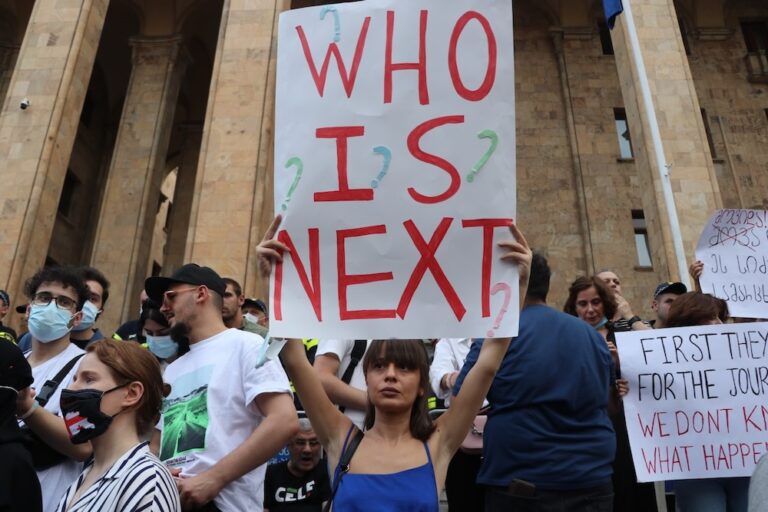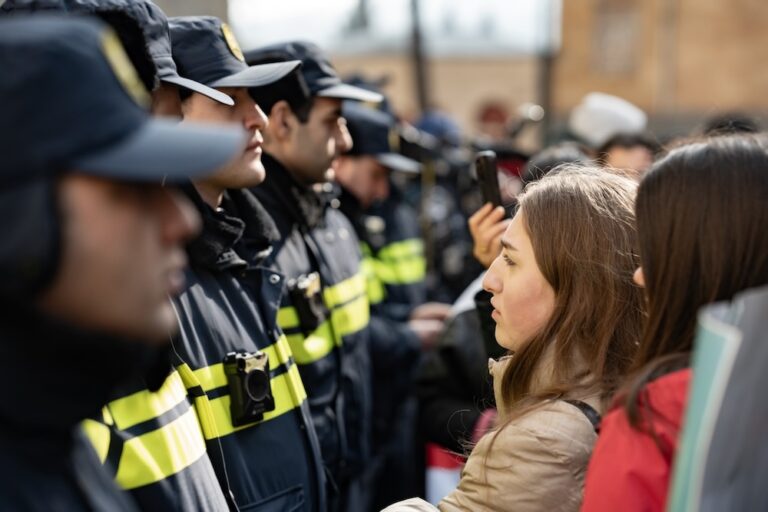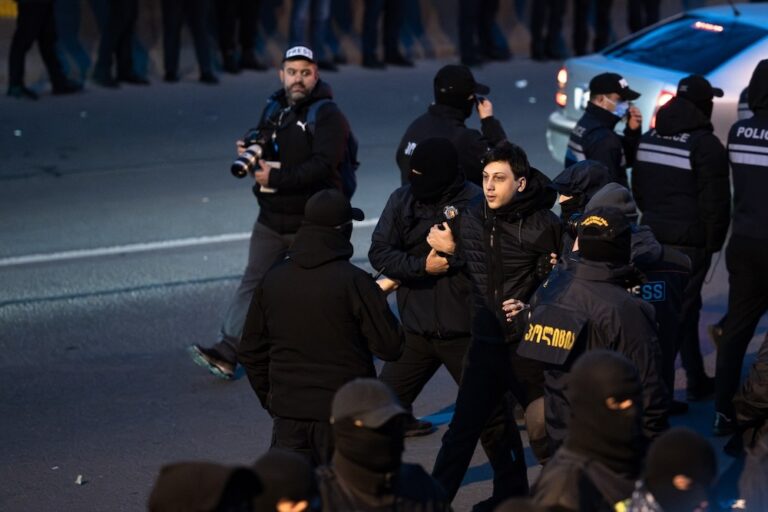The exact circumstances that led to journalist Shalva Ramishvili's arrest remain unclear, said IPI.
Concerns remain that jailing was part of clampdown on critical media
(IPI/IFEX) – VIENNA, 27 August 2009 – Georgian authorities on Wednesday released journalist Shalva Ramishvili from prison, after he served a full four-year term for alleged blackmail.
Ramishvili, a former reporter for – and part owner of – TV broadcaster ‘202’, has always protested his innocence, claiming his conviction was punishment for his criticism of Georgian President Mikhail Saakashvili.
Ramishvili was the anchor of a popular political talk-show at the time of his August 2005 arrest. He was charged with and found guilty of attempting to extort US$100,000 from then ruling party deputy Koba Bekauri, and sentenced to four years in jail.
Ramishvili and the general director of ‘202,’ David Kokhreidze, had held an interview with Bekauri in what they say was an attempt to show, for the program, that he was corrupt. He was asked for $100,000. In return, they said, they wouldn’t reveal what they knew. Bekauri secretly filmed the interview and then filed a legal complaint.
David Kokhreidze was imprisoned for three years on related charges; however he was pardoned in May 2007.
Ramishvili refused to apply for a pardon, as this would have involved an admission of guilt, the Tbilisi-based Human Rights Center (HRIDC) told IPI.
Local human rights organisations such as HRIDC, as well as international organisations such as the International Federation for Human Rights, have long expressed concern over the validity of the verdict against Ramishvili.
“(We) studied the case of Shalva Ramishvili and recognised him as a political prisoner,” said HRIDC lawyer Ana Natsvlishvili. “Putting Ramishvili behind bars for several years was one of the early indications of the Georgian government’s far-reaching strategy of dismantling opposition media outlets and silencing critical voices, while using the cover of law for that.”
‘202’ went off the air in October 2006.
“The exact circumstances that led to Ramishvili’s arrest remain unclear,” said IPI Deputy Director Alison Bethel McKenzie. “However, any time a prominent media voice that is critical of a government is silenced in a manner as murky as this there will inevitably be concerns that the move constituted a clampdown on the media.”


